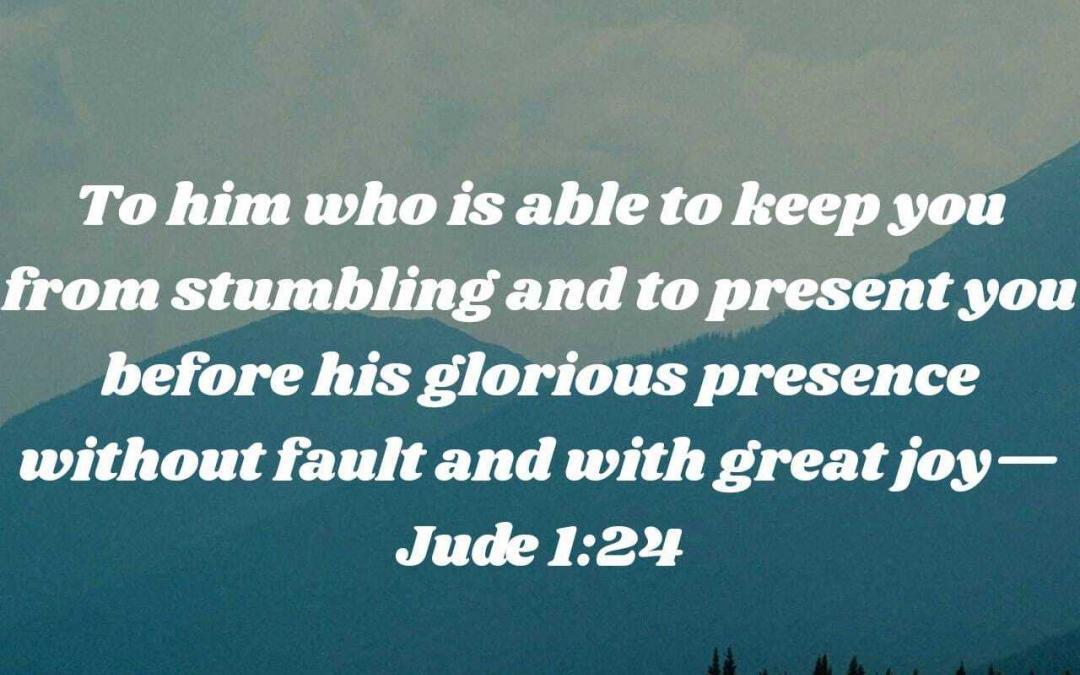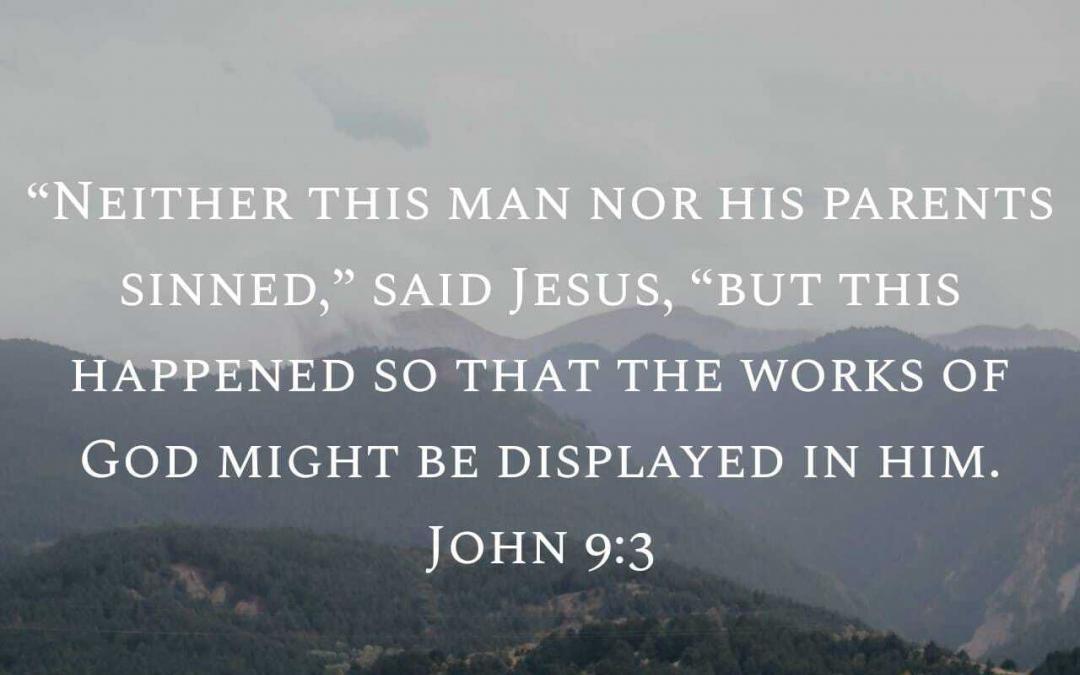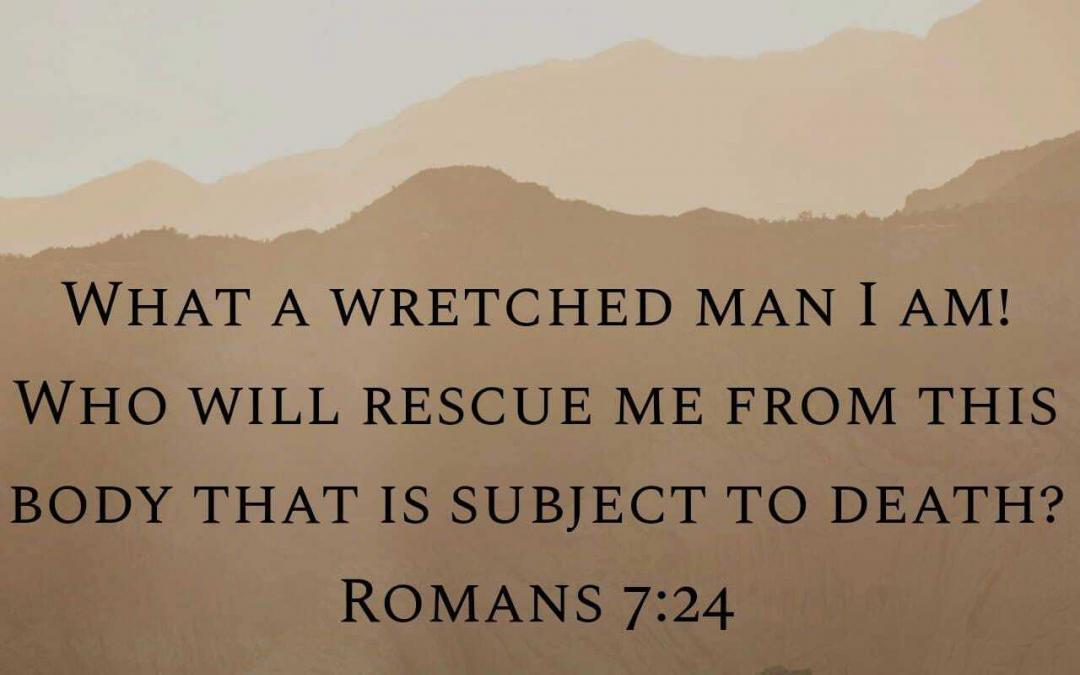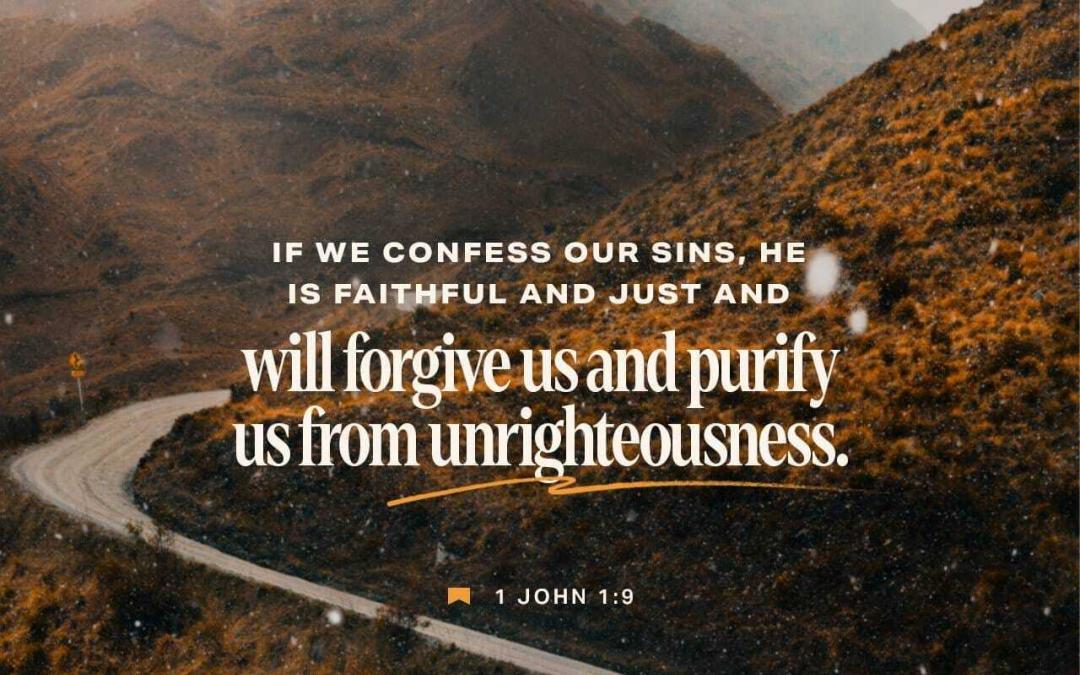
Standing Firm in the Last Days
Introduction: The book of Jude is a call to perseverance and faithfulness in times of increasing ungodliness. Jude 1:17-25 warns believers about the presence of scoffers and sinful influences while urging them to remain steadfast in their faith. This passage provides clear guidance on how to navigate difficult times with trust in God’s promises and a commitment to spiritual growth.
Background and Context: Jude, the brother of Jesus, writes this letter to believers warning them about false teachers and ungodly individuals who distort the truth. He reminds them of the apostles’ teachings, predicting that such challenges would come. Jude encourages believers to build themselves up in faith and rely on God’s mercy and power to remain strong.
Key Points:
- Recognizing Sin to Avoid (Sin to Avoid)
- “Their ungodliness… defiant words… flatter others for their own advantage” (Jude 1:15-16). Sinful behaviors such as arrogance, deception, and self-centeredness lead people away from God’s truth. We must guard against these influences in our own lives and communities.
- Claiming God’s Promises (Promise to Claim)
- “Keep yourselves in God’s love as you wait for the mercy of our Lord Jesus Christ” (Jude 1:21). God’s love and mercy sustain us in times of struggle. Holding onto His promises strengthens our faith and hope.
- Following the Right Example (Example to Follow)
- “The apostles of our Lord Jesus Christ foretold” (Jude 1:17). We are reminded to look to faithful leaders and the teachings of Christ’s apostles as a foundation for our beliefs and actions.
- Obeying God’s Call (Command to Obey)
- “Save others by snatching them from the fire; to others show mercy” (Jude 1:23). We are called to take action—helping those struggling in faith, extending mercy, and leading others toward God’s truth.
- Understanding the Instruction (Instruction)
- “Build yourselves up in your most holy faith and praying in the Holy Spirit” (Jude 1:20). Spiritual growth requires intentional effort—deepening our knowledge of God, praying fervently, and relying on His Spirit for guidance.
Practical Application:
- Stay alert against deception. Recognize and reject teachings that distort God’s truth.
- Live in God’s love and mercy. Trust that He sustains and strengthens you in challenging times.
- Seek godly examples to follow. Learn from faithful believers who remain steadfast in Christ.
- Actively share your faith. Extend mercy, help others, and lead them to Christ.
- Grow through prayer and faith-building. Strengthen your relationship with God through study and prayer.
Conclusion: In times of spiritual challenge, God calls us to stand firm. As we await Christ’s return, let us guard against sin, hold onto His promises, follow godly examples, obey His calling, and grow in faith. Through His power, we will remain steadfast and faithful, knowing that He is “able to keep us from stumbling” (Jude 1:24).

Faith in Delays: Trusting God’s Timing
Introduction: Life often presents us with delays—unanswered prayers, prolonged suffering, and waiting for breakthroughs. The story of Lazarus in John 11:1-7 reminds us that God’s delays are not denials but are purposeful. Through Jesus’ actions, we see that delays can lead to greater faith and the revelation of God’s glory.
Background and Context: John 11 introduces the story of Lazarus, a dear friend of Jesus, who falls seriously ill. His sisters, Mary and Martha, send word to Jesus, expecting Him to come immediately. However, Jesus does not rush to heal Lazarus but delays, stating, “This sickness will not end in death but for the glory of God.” This passage foreshadows the miracle of resurrection and highlights the importance of trusting in God’s perfect timing.
Key Points:
- Recognizing the Promise
- “In that place many believed in Jesus” (John 11:42). This verse reminds us that belief grows even in adversity. Delays often deepen our trust in God’s faithfulness.
- Learning from the Example
- “Sent word to Jesus” (John 11:3). Mary and Martha exemplify the right response to challenges—bringing concerns to Jesus in prayer.
- Avoiding Doubt and Fear
- “This sickness will not end in death” (John 11:4). Fear and doubt can cause us to question God’s love and power, but Jesus reassures us that all things work for God’s glory.
- Obeying God’s Direction
- “Let us go back to Judea” (John 11:7). Jesus challenges His disciples to follow Him despite risks. Obedience often requires stepping out in faith, even when circumstances seem dangerous or unclear.
- Understanding the Instruction
- “He stayed where He was two more days” (John 11:6). God’s delays teach us patience and reliance on His divine purpose rather than our immediate desires.
Practical Application:
- When faced with delays, turn to prayer rather than panic. Like Mary and Martha, bring your concerns to Jesus first.
- Trust in God’s purpose even when answers seem slow. His timing is perfect and often brings a greater revelation of His power.
- Step forward in obedience despite uncertainties. Faith grows when we act in trust, even when we don’t fully understand God’s plan.
- Use waiting periods for spiritual growth. Instead of frustration, seek to learn and grow in faith.
Conclusion: God’s delays are not a sign of His absence but of His greater plan. Just as Jesus used Lazarus’ situation to glorify God, He is working through our waiting seasons to build our faith and display His power. Trust in Him, even when He seems silent—because He is never late, only purposeful.

From Blindness to Belief – Seeing Through God’s Eyes
Introduction:
A young man was born blind. He never saw a sunrise, his parents’ faces, or the beauty of creation. One day, a doctor offered him a groundbreaking surgery. The moment the bandages came off, he gasped—he could see! His whole world changed.
In John 9, we meet a man who was not only physically blind but later given spiritual sight. His encounter with Jesus teaches us about God’s power, the danger of spiritual blindness, and the response of true faith.
Background & Context:
- In John 9, Jesus heals a man born blind, demonstrating God’s power over sin and brokenness.
- The Pharisees, instead of rejoicing, interrogate the man and reject the miracle.
- The healed man is cast out of the synagogue, but Jesus finds him and reveals Himself as the Son of Man.
- The story highlights two kinds of blindness: physical blindness (which Jesus heals) and spiritual blindness (which many refuse to admit).
Key Points:
1. God’s Power is Displayed in Our Weakness (John 9:3, 39)
- Key Verse (John 9:3): “It was neither that this man sinned, nor his parents; but it was so that the works of God might be displayed in him.”
- The disciples assumed the man’s blindness was because of sin, but Jesus corrected them—God was going to use his weakness for His glory.
- Application: Sometimes, our struggles are the very places where God wants to show His power. What area of weakness in your life can God use?
2. Spiritual Blindness is Worse than Physical Blindness (John 9:40-41)
- Jesus told the Pharisees (v. 41): “If you were blind, you would have no sin; but now that you claim you can see, your guilt remains.”
- The healed man recognized Jesus, while the religious leaders refused to.
- Many people have eyes but refuse to see the truth—pride, tradition, or fear keep them in spiritual darkness.
- Application: Are we truly seeing God’s truth, or are we stuck in religious blindness?
3. True Faith is Personal, Not Just Theological (John 9:35-38)
- Jesus finds the man and asks, “Do you believe in the Son of Man?”
- The man responds in faith and worships Jesus (v. 38).
- Faith isn’t just about knowing about God; it’s about knowing Him personally.
- Application: Have you moved from knowing about Jesus to worshiping Him?
Practical Application – “Opening Our Eyes”
- Examine Your Heart: Are there areas where pride or sin is keeping you spiritually blind?
- See God’s Work in Your Struggles: Instead of asking “Why me?” ask “How can God be glorified in this?”
- Respond in Worship: Like the healed man, let’s move from receiving blessings to truly worshiping Jesus.
Conclusion:
Jesus came to open blind eyes, both physically and spiritually. The man in John 9 gained both sight and salvation. The Pharisees, though religious, remained blind. The question is—which one are you?
Let’s pray that God opens our eyes to truly see Him.

Breaking Free: From Sin’s Chains to Spirit’s Power
Introduction
Have you ever felt like you’re stuck in a cycle of doing what you don’t want to do? Like Paul says in Romans 7:15, “I do not understand what I do. For what I want to do I do not do, but what I hate I do.” This struggle is real. We all battle sin, but the good news is that Jesus has already provided a way out. Today, we will uncover the sins to avoid, promises to claim, examples to follow, and commands to obey as we walk in freedom with Christ.
Background & Context
Paul writes to the Roman church explaining the power of sin, the law’s role in exposing it, and the transformative work of Jesus. The law isn’t bad—it reveals sin. But without Christ, we are trapped, powerless to break free. Paul describes this internal struggle but also gives us hope: we can be released from the law’s condemnation and serve God in a new way through the Spirit.
Key Points
1. Sin to Avoid – The Deadly Cycle of Sin (Romans 7:5, 7:8, 7:11, 7:14-15)
- “Sin, seizing the opportunity afforded by the commandment, produced in me every kind of coveting.” (Romans 7:8)
- Sin is deceptive. It uses God’s law to stir up rebellion in us.
- It enslaves, making us do what we hate.
🔴 Illustration: A man once caught a small snake, thinking it was harmless. But over time, it grew and eventually attacked him. Sin, too, may seem small, but it grows, ensnares, and ultimately destroys.
2. Promise to Claim – The Gift of Eternal Life (Romans 6:22-23, 7:6, 7:12)
- “Now that you have been set free from sin and have become slaves of God, the benefit you reap leads to holiness, and the result is eternal life.” (Romans 6:22)
- Through Christ, we are released from sin’s power and serve in a new way—by the Spirit!
- The law is holy and good, but only Jesus can give us victory over sin.
🟡 Illustration: Imagine being imprisoned for years, and one day, someone hands you the key. Would you stay locked up? Christ has given us the key—why remain in sin?
3. Example to Follow – Paul’s Struggle & Dependence on Christ (Romans 7:15-18)
- Paul admits, “For what I want to do I do not do, but what I hate I do.”
- Even the most faithful believer struggles, but the key is recognizing that our strength is in Christ, not ourselves.
🟢 Application: Like Paul, we must acknowledge our weakness and turn to Jesus daily for victory.
4. Command to Obey – Serve in the New Way of the Spirit (Romans 7:6)
- “We have been released from the law so that we serve in the new way of the Spirit, and not in the old way of the written code.”
- Our obedience now comes from love, not obligation.
- Instead of living in legalism, we walk in the Spirit and bear fruit.
🟠 Practical Step: Begin each day asking, “Holy Spirit, guide me in truth and righteousness today.”
Practical Application – Walking in Victory Over Sin
1️⃣ Recognize Sin’s Deception – It disguises itself as “freedom” but leads to death.
2️⃣ Claim God’s Promises – You are no longer a slave to sin! Walk in the Spirit’s power.
3️⃣ Follow Paul’s Example – Acknowledge your struggles but trust God’s grace.
4️⃣ Obey the Spirit’s Leading – Live a life of joyful obedience, not mere rule-following.
🙌 Challenge: This week, identify one area where sin keeps pulling you back. Surrender it to Christ and ask the Holy Spirit for strength.
Conclusion
We all have a battle within us, but we are not powerless! Jesus has set us free. Will you continue in sin’s cycle, or will you walk in the new way of the Spirit? The choice is yours.
🔥 Final Thought: Freedom isn’t just about breaking chains—it’s about walking in the Spirit’s power daily!

Walking in the Light – A Life of Truth and Fellowship
Introduction:
Imagine walking in a pitch-dark room. You stumble, unsure of where you’re going. Now, imagine flipping on a light switch—suddenly, everything is clear. This is the difference between walking in spiritual darkness versus walking in the light of Christ.
Background and Context:
The book of 1 John was written by the apostle John to encourage believers to walk in truth and holiness. He contrasts light and darkness to emphasize the need for genuine fellowship with God. Light represents holiness, truth, and God’s presence, while darkness symbolizes sin, deception, and separation from God.
Key Points:
Sin to Avoid – Walking in Darkness and Self-Deception
- 1 John 1:6 – “If we claim to have fellowship with him and yet walk in the darkness, we lie and do not live out the truth.”
- 1 John 1:8, 10 – “If we claim to be without sin, we deceive ourselves and the truth is not in us… If we claim we have not sinned, we make him out to be a liar.”
- Sin thrives in secrecy, but when exposed to God’s light, it loses its power.
Promise to Claim – God’s Forgiveness and Cleansing
- 1 John 1:7 – “The blood of Jesus, his Son, purifies us from all sin.”
- 1 John 1:9 – “If we confess our sins, he is faithful and just and will forgive us our sins and purify us from all unrighteousness.”
- God’s promise is not just to forgive but to cleanse, removing guilt and restoring us.
Example to Follow – Walking in the Light
- 1 John 1:7 – “If we walk in the light, as he is in the light, we have fellowship with one another.”
- Living in transparency, truth, and obedience to God is how we reflect His light to others.
Command to Obey – Confess and Walk in Truth
- 1 John 1:9 – “If we confess our sins, he is faithful and just…”
- God commands us to acknowledge our sins, not hide them. Genuine confession leads to restoration.
Practical Application – Turning on the Light Switch
- Daily Confession – Regularly examine your heart and bring your struggles before God.
- Fellowship with Others – Walking in the light means being accountable to godly believers.
- Live Transparently – Reject hidden sins and live in integrity, allowing God’s truth to shape your actions.
Closing Thought:
Are you walking in darkness or in the light? Today, choose to step into the light of Christ, where forgiveness, truth, and fellowship await.

